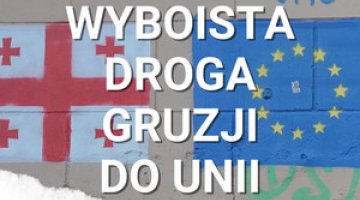The post-election deadlock in Georgia
On 28 October, two days after the parliamentary election (see ‘The fourth term of Georgian Dream: a questionable victory’), protestors took to the streets in Tbilisi, demanding accountability for alleged electoral fraud and supporting the continuation of the country’s pro-Western trajectory. The large-scale protests were organised by President Salome Zourabichvili, with opposition leaders in attendance. The demonstrations proceeded peacefully and did not continue the following day.
According to as-yet unofficial results, the ruling Georgian Dream party received 53.9% of the vote in the election. Opposition parties and the president claim that the election was fraudulent. Representatives of the EU, its member states, and the United States have also voiced serious concerns about the election’s integrity, citing the ODIHR/OSCE report. They are calling for an investigation into irregularities and have warned of consequences for violations of democratic principles.
Formally, complaints and grievances are currently being collected and reviewed. The Central Election Commission has indicated it may be willing to recount votes in several precincts. It has also requested that the prosecution authorities question the president on evidence of irregularities. Zourabichvili was summoned for 31 October.
The situation in Georgia remains both critical and at an impasse. It appears unlikely that all concerns about election integrity will be fully resolved in line with the opposition’s and Western expectations. If unresolved, this could adversely affect Georgia’s internal stability and its pro-Western orientation. Meanwhile, the opposition lacks a cohesive action plan, including strategies for sustaining public mobilisation that might exert effective pressure on the authorities.
Commentary
- The integrity of the election in Georgia raises serious concerns. The government, however, is unlikely to agree to a comprehensive review of irregularities or allow the opposition to participate in the process. The ruling party’s advantage during the campaign, including the use of administrative leverage, is as challenging to contest as it is to substantiate. The extent of irregularities in vote counting remains unknown. The discrepancy between independent exit polls, which estimated Georgian Dream’s support at around 42%, and the official result of 54%, clearly exceeds the statistical margin of error.
- The opposition has been incapable of effectively managing the crisis due to deep divisions among individual parties and a leadership vacuum. Leaders from four opposition groups have refused to accept the election results. Three of them have announced their intention to boycott the new parliament and reject their mandates, and all participated in the protests convened by the president. However, during and immediately after the protests, they failed to outline specific plans for action that might sustain and direct public momentum.
- Zourabichvili has emerged as the most prominent leader of pro-democratic and pro-Western Georgia, capable of mobilising the international community. However, her ability to coordinate the actions of opposition forces remains limited. Despite significant public unrest, particularly in the capital, the large-scale protests she called for two days after the election have not yet evolved into regular, organised gatherings and have drawn fewer participants than the spring protests against the ‘foreign agents’ law.
- The government has adopted a wait-and-see stance and appears to have the situation under control. It has dismissed allegations of election fraud but has taken symbolic steps to address them. The protests have not been suppressed; however, measures have been implemented to discredit the president, including summoning her to the prosecutor’s office. Unless street protests intensify, the government is likely to manage the crisis by exploiting the opposition’s weaknesses, given the broader public’s concerns over preserving national stability. Efforts will likely be made to co-opt individual opposition activists, alongside actions affirming the elections’ legitimacy, which will probably culminate in the new parliament’s inauguration and the election of a new president. Georgian Dream remains the dominant and resolute party, set to retain power. In any scenario, Georgia faces the likelihood of continued ruling party dominance and the effective dismantling of its democratic foundations.
- Election irregularities are further deepening the crisis in Georgia’s relations with the West. Concerns about the dismantling of democratic institutions and a potential halt to the pro-Western trajectory, already significant before the elections, have now intensified. Although Western countries have not directly contested Georgian Dream’s victory, they have not fully recognised the elections and warned of ‘serious consequences’. Early indications of this shift include Sweden and Canada suspending governmental cooperation with Georgia. While the Georgian government appears unwilling to make major concessions, it has softened its strongly anti-Western rhetoric prevalent during the campaign. Given the current dynamics, EU cooperation with Georgia is likely to be significantly reduced. Targeted sanctions may be imposed, although a full diplomatic break or a complete reorientation of Georgia’s policy towards Russia remains improbable.



